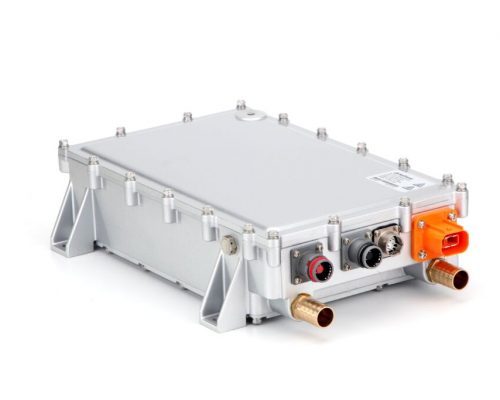Project Report For OnBoard Chargers
Introduction
Project Report for OnBoard Chargers is as follows.
An on board charger (OBC) is a power electronics device in electric vehicles (EVs) that converts alternating current (AC) power from external sources, such as household outlets, to direct current the battery pack of the car with direct current (DC) power.
To decide the appropriate current/power and charging standard to use, the OBC connects with the vehicle controller and charging station. Globally, there are many different charging standards, including regional rules for China, Europe, and North America. Based on information from the vehicle controller or EV supply equipment (EVSE) controller, the OBC can automatically adapt to the appropriate regional requirements.
While minimising battery deterioration, OBC innovations can assist EV manufacturers in meeting consumer demand for quicker charging. Constant current and constant voltage charging are the two charging options offered by AC chargers. Constant voltage, often known as trickle charge, is slower but offers greater control and can charge the car to its full capacity. Constant current charges the battery more quickly but cannot fully charge the vehicle.
The OBC starts the charging cycle with constant current and changes to constant voltage towards the end to maximise speed. Single-phase and three-phase onboard chargers are the two most common varieties. Standard single-phase OBCs have a capacity of 7.2 kW to 11 kW, whereas three-phase OBCs have a capacity of 22 kW. The vehicle’s charging time is significantly influenced by the OBC’s capacity.

Level Of OnBoard Chargers
- Level 1 : They are frequently the slowest sort of onboard charger, with a charging duration of 8 to 12 hours, and they charge an electric vehicle’s battery using a regular 120 V AC electrical outlet. Level 1 onboard chargers have several benefits, including affordability, accessibility, and compatibility with regular household outlets. One drawback is that they take a while to charge, which might make them less useful for long-distance travel.
- Level 2 : They provide quicker charging periods than level 1 on-board chargers, with a charging duration of 4 to 8 hours, when using a 240 V AC electrical outlet to charge the battery of an electric car. The quicker charging times of level 2 onboard chargers make them more useful for long-distance trips, and they are also compatible with public charging stations. They are more expensive, need a special charging station, and may only be available in certain locations, among other drawbacks.
- Level 3: Direct current (DC) is used to charge the battery of an electric car via these devices, which are sometimes referred to as DC fast chargers. They provide the quickest charging periods, taking only 30 to 60 minutes to charge.
- Level 4: Onboard chargers have the advantage of having a quick charging period, which makes them perfect for long distance travel, and compatibility with public charging stations. Their drawbacks include their expensive price, the requirement for a special charging station, and the possibility of restricted availability in some locations.
Project Report Sample on
OnBoard Chargers
Get Completely Custom Bankable Project Report
Market Potential Of OnBoard Chargers
The market for on-board chargers was valued at USD 4.05 billion in 2020, and between 2021 and 2028, it is expected to rise at a CAGR of 17.2%.
The high cost of recharging an electric vehicle at public charging stations is the primary factor driving the current demand for on-board chargers. Public chargers located close to roads, shopping centres, and businesses are subject to commercial electric rates that are higher than residential rates. Customers choose this type of charger since it does not necessitate any additional electrical work, minimising the overall cost of installation.
Furthermore, approvals for AC Level 2 charging stations are a major driver of industry growth. EVBox, a provider of electric vehicle charging infrastructure, said in October 2020 that their EVBox Iqon, a level 2 commercial charging station, has received UL certification and is now ready for installation across North America.

